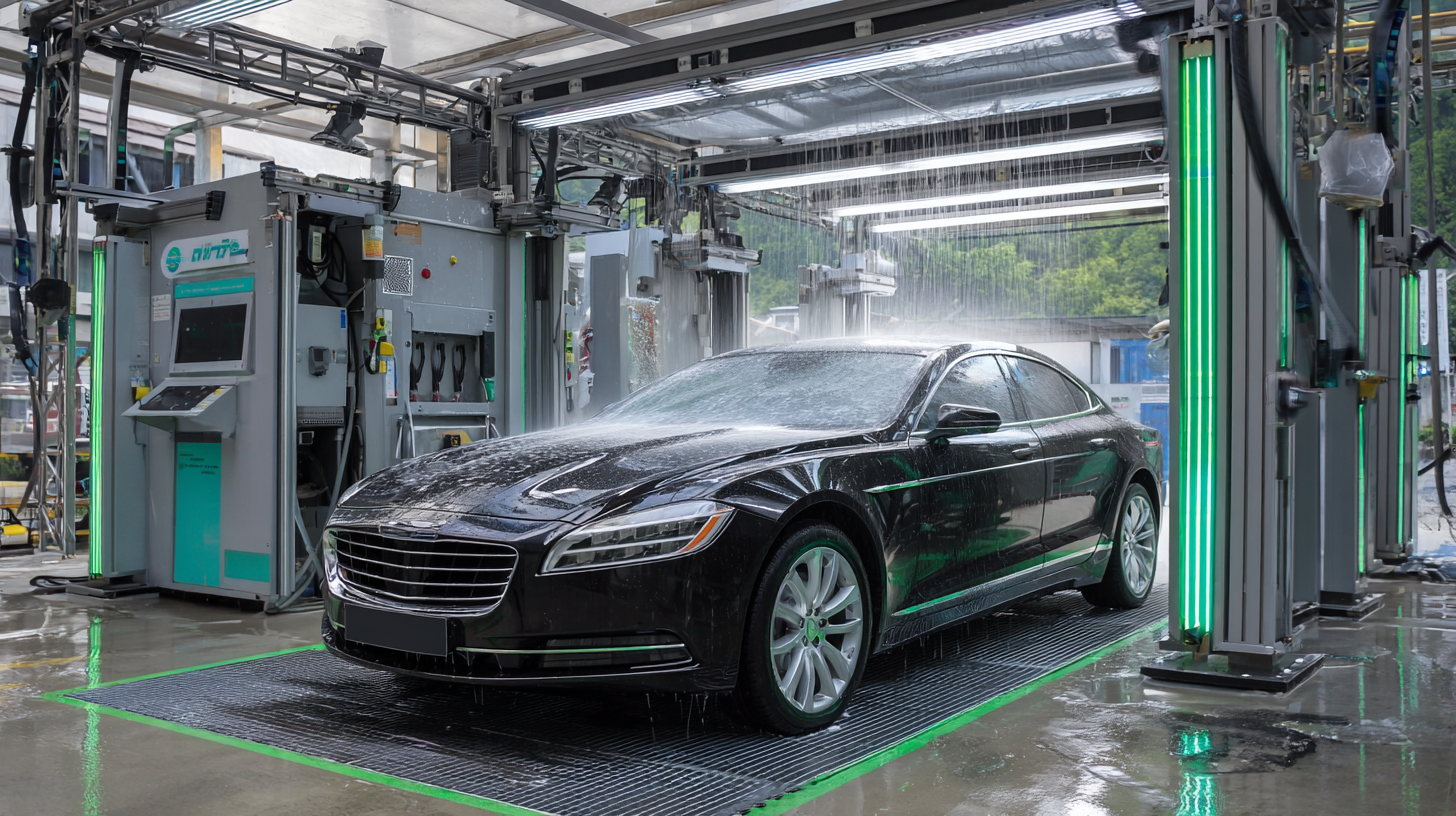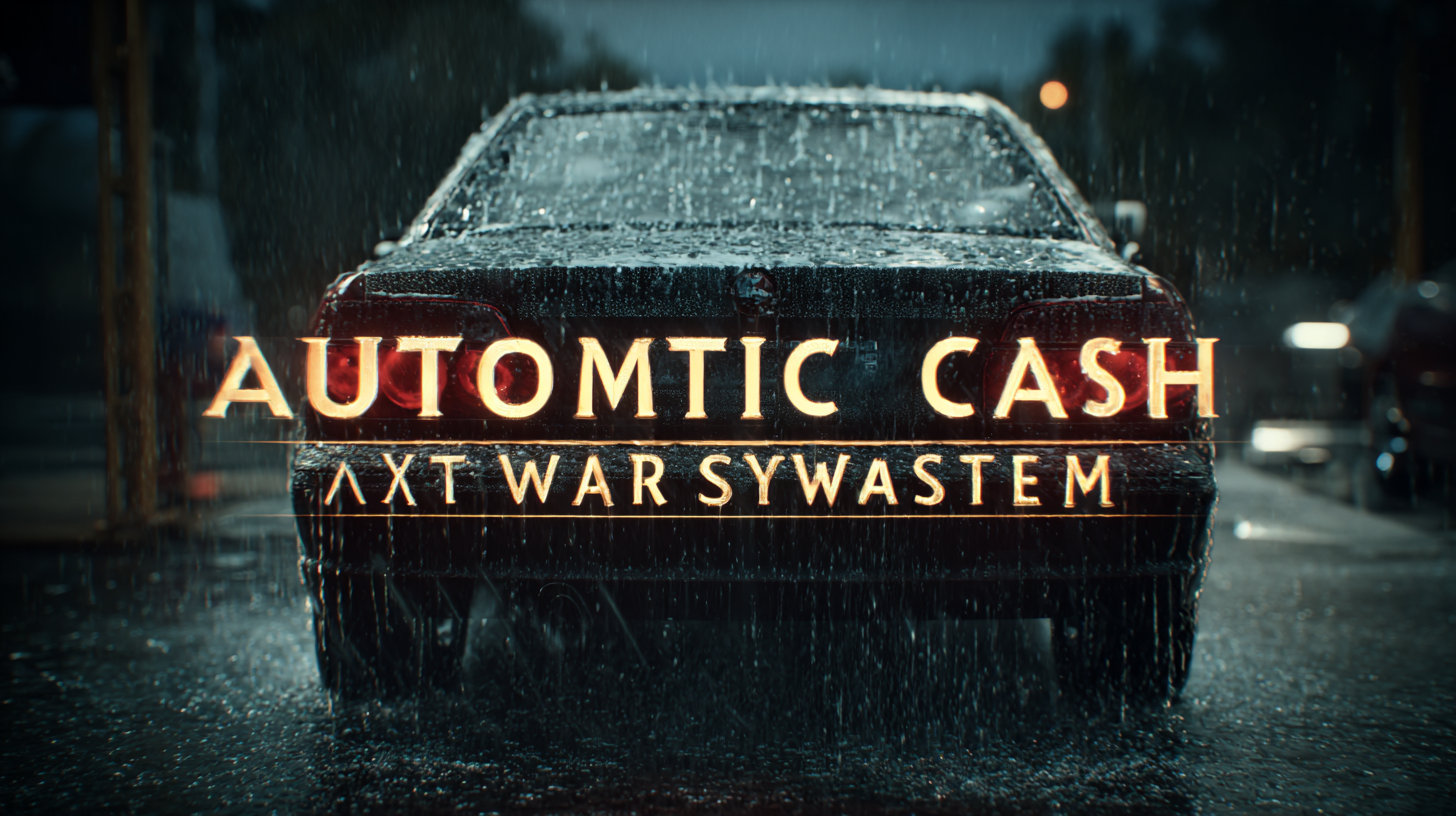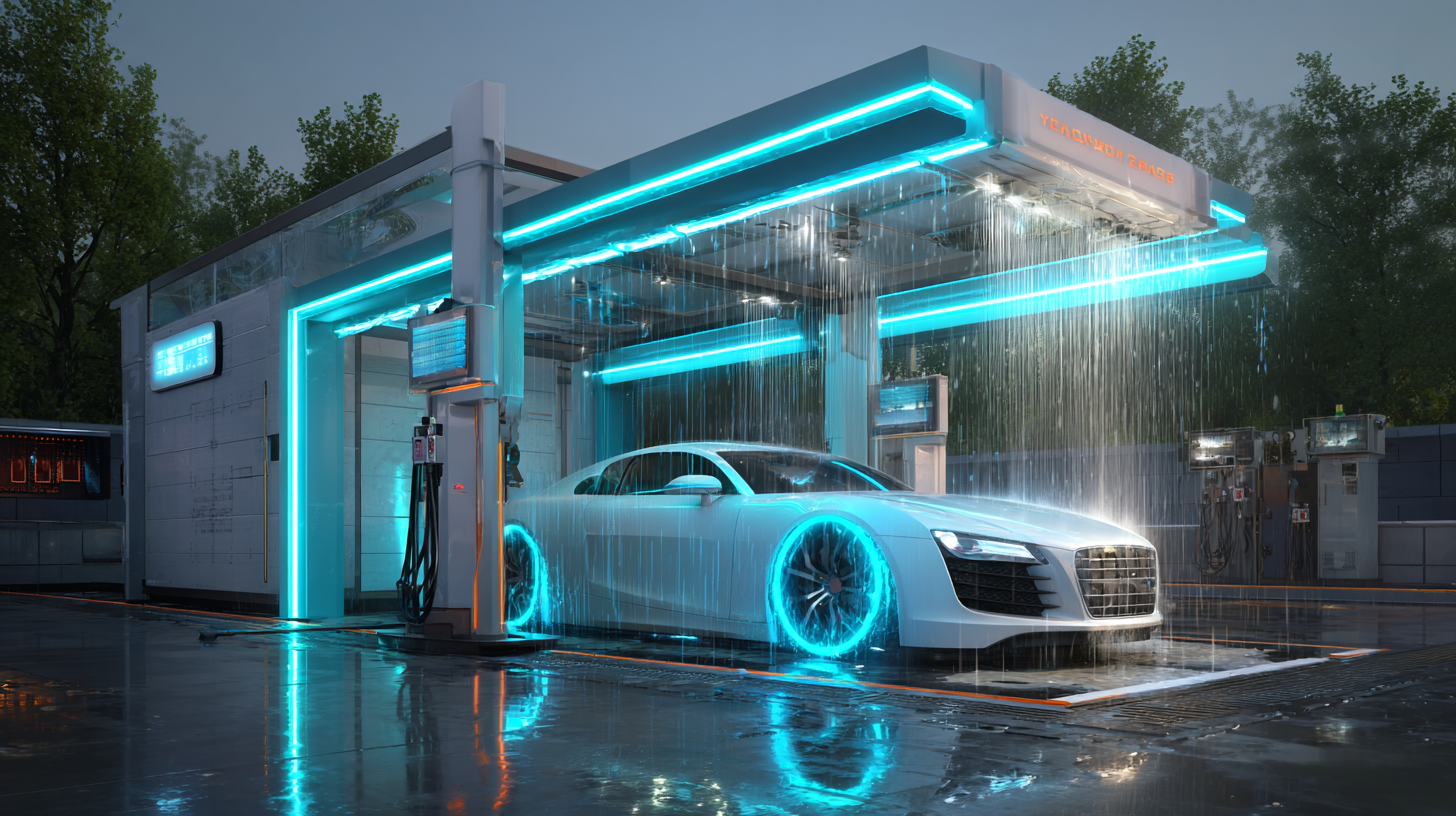Exploring the Future: Innovative Alternatives to Automatic Car Wash Systems in 2025
As we usher in 2025, the landscape of car maintenance is on the brink of transformation, spurred by rapid advancements in technology and a growing demand for sustainable solutions. Traditional automatic car wash systems have served drivers well, but their costs and environmental impact have prompted the industry to explore innovative alternatives. This blog delves into the emerging trends and technologies that promise to reshape the way we think about vehicle cleaning, addressing the pressing concerns surrounding Automatic Car Wash System Cost while highlighting eco-friendly options that enhance convenience and efficiency. From mobile washing units to waterless cleaning solutions, we examine the future possibilities that not only offer cost-effective choices for consumers but also contribute to a more sustainable automotive ecosystem. Join us as we explore the innovative frontiers redefining the car wash experience in 2025.

Innovative Waterless Car Wash Technologies: Reducing Water Consumption by 90%
As we move toward a more sustainable future, innovative waterless car wash technologies are rapidly gaining traction. The GO Waterless initiative is a prime example of this trend, using a plant-based high lubricity spray that effectively captures dust particles from vehicle surfaces without a single drop of water. This approach not only addresses water scarcity concerns but also reduces pollution and harmful runoff associated with traditional washing methods. Such waterless solutions can drastically cut water consumption by up to 90%, making them an attractive option for environmentally conscious consumers.

Furthermore, major players in the automotive sector are beginning to adopt these waterless techniques. Rental companies have already started implementing non-toxic, eco-friendly cleaning solutions, signaling a significant shift in industry standards. As we look ahead to 2025, the mobile car wash and detailing market is set to expand significantly, driven by the demand for convenient and sustainable vehicle maintenance options. By embracing these innovative alternatives, the auto industry plays a crucial role in promoting responsible water use and pushing for greener solutions that benefit both consumers and the environment.
Sustainable Biodegradable Cleaning Solutions: The Shift Towards Eco-Friendly Products
As we approach 2025, the automotive and cleaning industries are witnessing a remarkable shift towards sustainable biodegradable cleaning solutions. Reports indicate that the global market for eco-friendly automotive cleaning products is set to grow at a compound annual growth rate (CAGR) of over 7% from 2023 to 2028. This surge reflects a growing consumer demand for environmentally responsible options, driven by heightened awareness of climate change and the detrimental effects of traditional chemical cleaners on ecosystems.
Innovative biodegradable cleaning products, made from natural ingredients, are emerging as viable alternatives to conventional car wash solutions. For instance, products utilizing plant-based surfactants not only deliver effective cleaning power but also break down more easily in the environment. According to a recent study by the Environmental Protection Agency (EPA), using eco-friendly products can reduce water pollution by up to 50% compared to standard cleaners. The transition to these greener alternatives not only benefits the planet but also encourages businesses to adopt responsible practices that align with consumer values, ultimately shaping the future of car care in a sustainable direction.
Exploring the Future: Innovative Alternatives to Automatic Car Wash Systems in 2025
| Feature | Traditional Automatic Wash Systems | Innovative Alternatives (2025) |
|---|---|---|
| Water Usage | Up to 50 gallons per wash | Minimal water with waterless solutions |
| Cleaning Agents | Chemical detergents | Biodegradable, eco-friendly products |
| Energy Consumption | High energy usage for pumps and dryers | Low energy, potential for solar-powered systems |
| Environmental Impact | High pollution and runoff issues | Significantly reduced pollution, localized solution |
| Operational Cost | High maintenance and operational costs | Lower costs over time with sustainable products |
Smart Car Wash Systems: Integrating IoT for Enhanced Customer Experience and Efficiency
As we move towards 2025, the landscape of car washing is evolving with the integration of Internet of Things (IoT) technologies. Smart car wash systems are emerging as a game-changer, offering an elevated customer experience through personalization and automation. These advanced systems leverage connected devices to gather data on customer preferences and vehicle specifications, enabling tailored wash options that fit individual needs.
Imagine receiving notifications on your smartphone that remind you to schedule a wash, while also suggesting specific services based on your car's last wash date and weather conditions.
Moreover, the efficiency of car washes is set to improve dramatically with IoT integration. Real-time monitoring can optimize water and detergent usage, significantly reducing waste and environmental impact. These systems can also employ predictive maintenance, alerting operators when equipment requires servicing before it fails. Not only does this enhance operational efficiency, but it also ensures that customers enjoy seamless service with minimal downtime. The combination of data-driven insights and automation will redefine how we perceive car washing, making it a more satisfying and sustainable experience for all.
Subscription-Based Car Care Services: A Growing Trend in the Automotive Service Industry
The automotive service industry is witnessing a significant shift towards subscription-based car care services, projected to gain momentum in the coming years. According to recent market analysis, the Automotive Repair and Maintenance Services Market is expected to demonstrate a robust CAGR of over 10.2% from 2025 to 2032, potentially exceeding USD figures as consumer preferences evolve. This trend aligns with the growth of the car detailing service market, which is anticipated to rise from $38.93 billion in 2025 to $56.59 billion by 2032, reflecting a steady CAGR of 5.5%.
This surge in subscription models is largely driven by advancements in technology and the increasing number of software-defined vehicles. Subscription services offer consumers greater flexibility, catering to those who seek tailored car care solutions without the commitment of traditional ownership models. Concurrently, the influx of new car wash outlets across the U.S., fueled by private equity investments and subscription-based business strategies, underscores this changing landscape. As consumers become more accustomed to these innovative offerings, we can expect the automotive service industry to continue evolving, adapting to meet the demands of a new generation of car owners.

Mobile Car Wash Apps: Revolutionizing Convenience with On-Demand Services
The future of car maintenance is rapidly evolving, with mobile car wash apps leading the charge in transforming convenience and service accessibility. In 2025, these revolutionary platforms are set to redefine how car owners manage cleanliness and maintenance, allowing users to schedule washes at their convenience with just a few taps on their smartphones. The on-demand model not only saves time but also brings the car wash experience directly to the consumer, eliminating the need for long waiting times at traditional car wash locations.
Moreover, mobile car wash apps are integrating advanced technologies such as real-time tracking, payment processing, and personalized service options. Users can select types of washes, special services like interior detailing, and eco-friendly products—all while monitoring the status of their service in real-time. This level of customization and flexibility empowers car owners to make informed decisions and choose options that best suit their individual needs and schedules. As we move closer to 2025, the rise of these mobile-friendly solutions will not only enhance convenience but also contribute significantly to sustainability by promoting water-efficient practices and reducing the carbon footprint associated with traditional car washes.